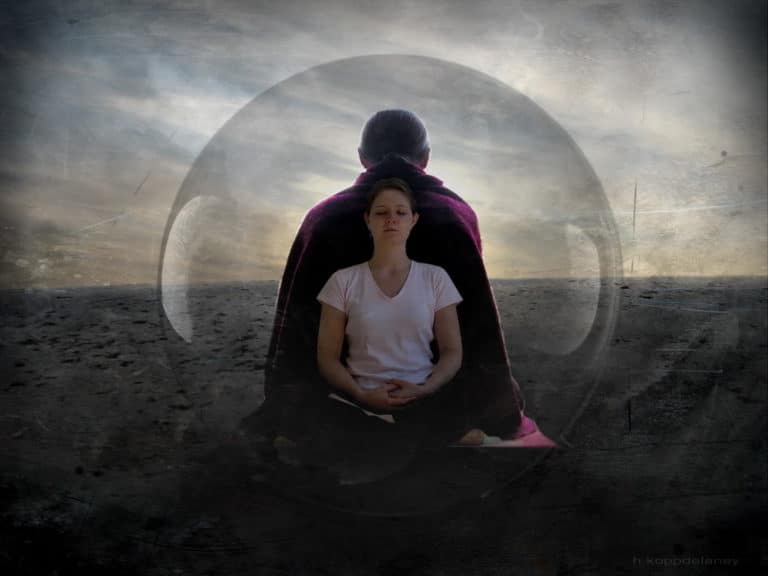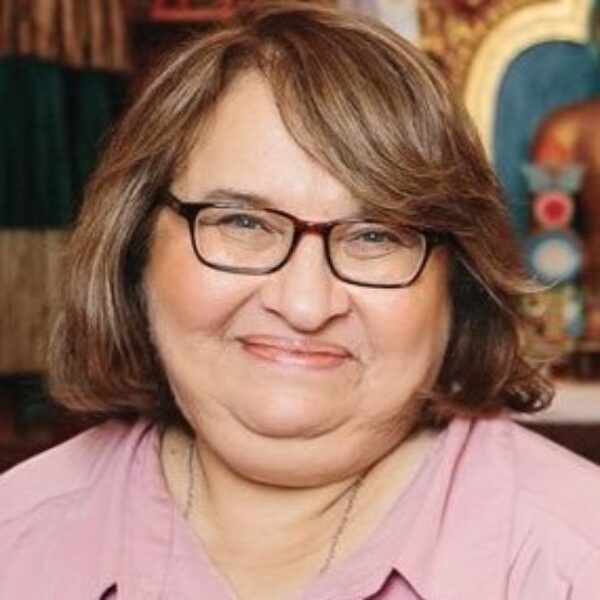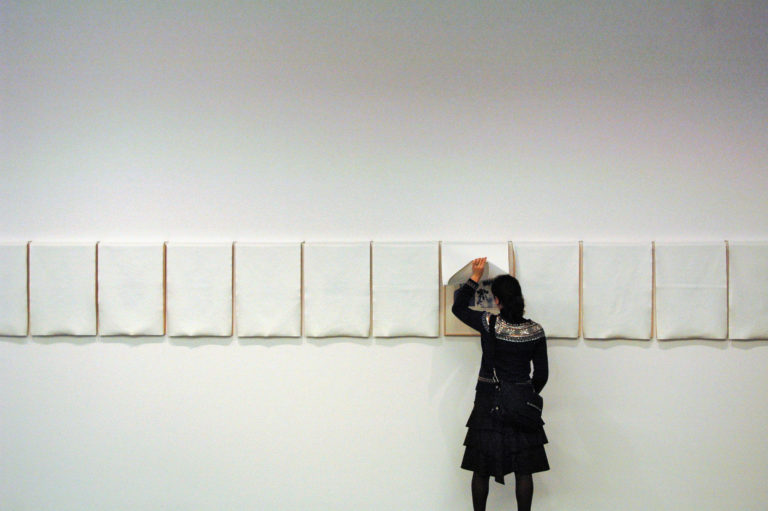
Image by H. Kopp-Delaney/Flickr (CC BY-ND 2.0)..
How We Identify, How We Live
I attended the wedding of a friend’s daughter recently, chatting with someone who, like me, was of Jewish origin and had long been practicing meditation techniques carried by Buddhist lineages. He was saying how much he disliked the term “Jubu,” a term popularly applied to people who might be culturally Jewish — as Ram Dass once described, “Jewish on my parents’ side” — but ensconced in Buddhist practices, or to people who who consider themselves observant Jews and yet are ardently devoted to meditation techniques they learned during Buddhist retreats. My friend said he considered himself neither a Jew nor a Buddhist; rather, he said, he was a person seeking to be good and do good, and found the term Jubu somewhat offensive in its assumptions.
I, myself, don’t mind the term. I think it is kind of funny. I believe I was there, in 1971 in India, when someone first came up with it.
Many people live in a kind of self-proclaimed hyphenated reality. I know Catholic-Sufis, Catholic-Zennies, Unitarian-Buddhists, Hindu-Buddhists, Hindu-Jews and a whole lot of meditators who are atheist, humanist, religiously unaffiliated, spiritual-but-not-religious and put the hyphen in different places in that compound. Many of us are our own interfaith experiment. And if Buddhism is part of that experiment, it can make a lot of sense. After all, the Buddha urged people not to consider his teaching a set of beliefs or a dogma to be followed, but a path to freedom.
Wilfred Cantwell Smith, the late scholar of comparative religions at Harvard, writes about faith and contrasts it with belief. He says:
“Faith is deeper, richer, more personal. It is engendered by a religious tradition in some cases and to some degree by its doctrines, but it is a quality of the person and not the system. It is an orientation of the personality to oneself, to one’s neighbor, to the universe; a total response, a way of seeing whatever one sees and of handling whatever one handles; a capacity to live at more than a mundane level; to see, to feel, to act in terms of a transcendent dimension… Faith, then, is a quality of human living.”
Cantwell Smith actually created a sense of opportunity within religion — to know the aliveness of religious faith without feeling bound to all dogma or doctrine out of a sense of loyalty. He’s saying that you don’t have to give up the aspect of faith in your life. You don’t have to adhere to all the beliefs of a tradition in order to have a sense of meaning and orientation in your life, one that is vibrant and relevant and alive.
Often beliefs rather than pointing toward the “total response,” the listening quality of faith, point toward a sense of identification.
Often belief points toward a sense of identification rather than the listening quality of faith: “I am such and such, and therefore I believe these things and you don’t.” We separate ourselves from others in terms of how we celebrate rituals and holidays, how we locate a sense of transcendence, and how we name what is sacred and, in the end, unnamable.
I traveled with some friends around the world immediately after the Gulf War. Security was very tight in airports around the world. After studying with a teacher in Nepal, we stopped in Thailand on our way home. As we were walking through the Bangkok airport toward our plane, we were pulled aside by a security guard. Besides the regular questions (“Did you pack your own suitcase?), we were asked things like, “What did you do last night?” Then, in what seemed to be an unrelated question, the guard looked at me and asked, “Are you Jewish?” Having been born and raised in a Jewish household, I answered, “Yes.”
He let us go, and we continued on our way. We placed our luggage on the conveyor belt to be inspected by the X-ray machine. During our stay in Nepal, we had bought a number of Buddha statues that happened to be in my carry-on luggage. And there they were, silhouetted in gold up on the security monitor. The woman at the checkpoint looked at me and said, “Are you Buddhist?” I said, “Yes.”
Sitting on the plane, I thought, “That was so weird. That was probably the most condensed period of my life in which I was twice asked my religion and I answered yes to two different affiliations.”
In some contexts, I say I am a Buddhist. The values I try to live by, the practices I utilize every day to try make those values real rather than just idealistic notions, all come from the Buddhist tradition. Every one of my meditation teachers has been a Buddhist (and Asian). But because I was taught over and over again that Buddhist teaching was about a path, not about an “ism” at all, there are other times I’m asked the question of what I am and I say I don’t think like that.
Occasionally (rarely, actually) people ask me if I am Jewish. Usually, I simply say yes. People the world over have said to me that I am “very New York.” I think that implies a kind of cultural Jewishness that I guess must be apparent about me. But it’s not where I turn — at least so far in my life — for moral clarity, or my concept of greatness, or my explorations of love. My lived spirituality is through Buddhism.
In the Bangkok airport I said yes twice. The second yes came by birth and the first yes came by practice. I suppose I could have said I was a Jubu, but I don’t think the security guard was that hip. I realized then, and understand now, that what is most important was not what I called myself but how I live.


Share your reflection